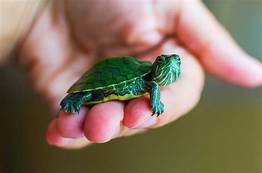Do Animals Like Being Pet?
When it comes to our animal companions, we often wonder if they enjoy being petted as much as we enjoy petting them. The answer is not always straightforward, as it depends on a variety of factors, including the animal's species, personality, and past experiences.

Benefits of Petting Animals
There are several benefits to petting animals, both for the animals themselves and for their human companions.
• **Reduced stress:** Studies have shown that petting animals can help to reduce stress and anxiety levels in both humans and animals. This is likely due to the release of oxytocin, a hormone that promotes bonding and relaxation.
• **Improved mood:** Petting animals can also help to improve mood and reduce feelings of loneliness and depression. This is likely due to the release of endorphins, which have mood-boosting effects.
• **Strengthened bond:** Petting animals can help to strengthen the bond between humans and animals. This is because petting is a form of physical contact, which can help to create a sense of trust and intimacy.
When Animals Don't Like Being Pet
While most animals enjoy being petted, there are some that do not. This can be due to a variety of factors, including:
• **Negative experiences:** Animals that have had negative experiences with being petted, such as being petted too roughly or in a way that causes them pain, may be more likely to avoid being petted in the future.
• **Personality:** Some animals simply have a more independent personality and do not enjoy being touched. This is especially true of some cats.
• **Species:** Some species of animals are more likely to enjoy being petted than others. For example, dogs and cats are generally more social animals than rabbits or hamsters, and they may be more likely to enjoy being petted.
How to Tell if an Animal Likes Being Pet
There are a few signs that can help you tell if an animal likes being petted. These signs include:
• **Relaxed body language:** A relaxed animal will have its body relaxed, its tail up, and its ears forward. It may also close its eyes or purr.
• **Positive vocalizations:** Some animals, such as dogs, may make positive vocalizations, such as barking or whining, when they are being petted.
• **Seeking out petting:** An animal that likes being petted may seek out your attention and rub against you or put its head in your hand.
Tips for Petting Animals
If you want to pet an animal, there are a few things you can do to make sure that the experience is positive for both you and the animal.
• **Ask for permission:** Always ask the animal's owner if it is okay to pet the animal before you do so. This is especially important if you are petting an animal that you do not know.
• **Start slowly:** Start by petting the animal gently on the head or back. Avoid petting the animal's belly or tail, as these areas can be sensitive.
• **Pay attention to the animal's body language:** If the animal starts to show signs of stress or discomfort, such as pulling away, licking its lips, or flattening its ears, stop petting it.
• **Be respectful:** Remember that the animal is not your property. Be respectful of its boundaries and do not force it to be petted if it does not want to be.
Declaration: All article resources on this website, unless otherwise specified or labeled, are collected from online resources. If the content on this website infringes on the legitimate rights and interests of the original author, you can contact this website to delete it.




